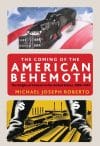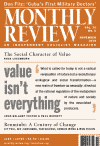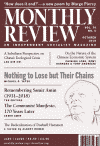History

Liberal Historians and the Retreat from Class
While the explosion of studies on the rise of the right has undoubtedly enriched our understanding of these powerful forces and individuals, we are due for critical assessments of these studies from the left. Over the past few decades, dismissals of class-based interpretations of history have plagued this type of scholarship. Expressed by some of the profession’s most institutionally privileged members, such dismissals have led to a narrowing of discussions and debates by limiting studies to the tensions between liberals and conservatives and by downplaying or ignoring leftist critiques of liberalism. | more…

The presidential elections in Cuba in March 2018 has raised again the question of the country’s survival. How can Cuba hold up and develop against the economic, cultural, and military encirclement of U.S. imperialism in particular and the capitalist system in general? An answer can be sought in the history of Cuba’s socialist transition, the unique role played by Che Guevara, and the emergence of ideas regarding the possibility (and impossibility) of achieving socialism in one country alone. | more…

Most people in the United States have been trained to recognize fascism in movements such as Germany’s Third Reich or Italy’s National Fascist Party, where charismatic demagogues manipulate incensed, vengeful masses. We rarely think of fascism as linked to the essence of monopoly-finance capitalism, operating under the guise of American free-enterprise. But, as Michael Joseph Roberto argues, this is exactly where fascism’s embryonic forms began gestating in the United States, during the so-called prosperous 1920s and the Great Depression of the following decade. | more…

In this article from Ever Since Darwin, Stephen Jay Gould describes how the Museum of Natural History’s Gobi Desert expeditions of the 1920s failed to achieve their stated purpose: to find the ancestors of man in Central Asia. In a perceptive analysis of the political role of science and of the social biases that affect thought, Gould describes how anthropologists—despite a complete lack of direct evidence—believed that human evolution was propelled by an enlarging brain, and not, as is the case, upright posture. | more…

China’s economic development and success has been widely misunderstood and treated with perplexity. This overview of the Chinese economy provides an analysis of the drivers of the country’s growth and crises, including industrialization and the agrarian question. | more…

The twenty-first century has resulted in a vast upsurge of ecological Marxism and ecosocialism more generally, building on the environmental critique of capitalism embedded in classical historical materialism. At the same time, it has also engendered opposing tendencies and approaches concerning how we understand relentless ecological destruction under capitalism. This issue is dedicated to exploring the theoretical advances, schools of thought, and debates on the left in regard to our world’s ecological crisis, which threatens the survival of humanity and is inescapable within the present capitalist system of production. | more…

There is considerable interest in the history and characterization of China’s economy. This overview of the evolution of the renminbi from the late Qing dynasty to the present, shows how China’s political and economic changes in the twentieth and twenty-first centuries are reflected in the development of its highly contested modern currency system. | more…

In the 1960s and the context of mushrooming popular movements across the globe, the brutality of U.S. imperialism, the unreliability of the Soviet Union as an ally, and the Latin American Communist Parties’ focus on the urban working class, Cuban leaders felt beckoned to help revolutionary projects in Africa. While Cuba sent soldiers, they also sent doctors. By the end of the 1960s, when the Cuban revolutionary government had been in power for only ten years, doctors had been involved in four different African political projects. Cuba’s deployment of military doctors to Africa left profound impacts, both on the host countries and on the Cuban doctors, who were bound to secrecy and only began sharing their stories decades later. | more…

This issue is dedicated to remembering the life and work of Samir Amin (1931–2018), the greatest single theorist of imperialism of the late twentieth and early twenty-first century, and one of the leading world activists and organizers in today’s anti-imperialist struggle. | more…

In the last piece he wrote before his passing, Samir Amin revisits, for our age, the most important revolutionary document of all time, the Communist Manifesto. In a fitting conclusion to the work of a great revolutionary intellectual, Amin seeks nothing less than to explain the changing world trajectory from 1848 to 2018. Against the persistent vision of the globalized development of capitalism, he puts forward a vision for the transformation of the world through revolutionary processes—breaking with the submission to the deadly vicissitudes of the decadence of civilization.

There is considerable debate within China about the nature of the economy, including recognition of tendencies toward state capitalism. Consequently, most writers focus theorization of the many possible paths the economy could take—whether toward or away from capitalism. The present article takes a step further, arguing that the Chinese system today still contains some key components of socialism and is compatible with a market, or market-based, socialism that is clearly distinct from capitalism. | more…

In his review of Hardboiled Activist: The Work and Politics of Dashiell Hammett by Ken Fuller, Albert Ruben debunks popular arguments about Hammett’s consistent radicalism. Instead, he highlights Fuller’s research to point to Hammett’s process of radicalization—from nihilism to communism—and the events that shaped his life and work. | more…











